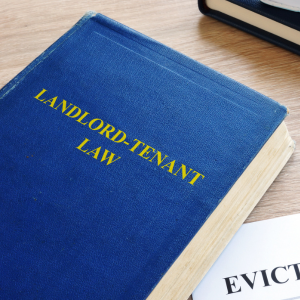
Understanding Tenant Rights in Virginia Real Estate Transactions
Understanding your tenants’ rights is essential when selling a house in Virginia that is currently occupied. In Virginia, special lease landlords must manage the lease agreements that are currently in place, which means tenants will have the right to stay until the lease term expires unless specific terms are agreed upon for early exit.
Moreover, notices of property showings and inspections are also controlled by law. As the Virginia Residential Landlord and Tenant Act (VRLTA) requires, tenants must be notified 24 hours before achieving the desired objectives. It’s also vital that landlords know that tenants cannot be forced to leave only because the house is being sold; laws against retaliatory evictions provide these occupants with significant protections.
Awareness of these legal requirements assists in avoiding noncompliance issues, easing tenant rights concerns, and facilitating a streamlined transaction process during the real estate deal.
Legal Considerations for Selling Rental Property in Virginia
When selling a rental property in Virginia with tenants, it is crucial to navigate the legal landscape carefully to ensure compliance and avoid potential disputes. Lease agreements are key documents every landlord needs to see to determine the conditions under which tenants live on the property.
Tenants are legally supposed to receive notifications regarding the sale and timing, which must adhere to the lease terms and local laws. The next stage is confirming whether the lease allows termination upon purchase or if it will continue with the new owner.
Furthermore, landlords must be aware of tenants’ rights under Virginia’s laws, especially regarding security deposits during a change of ownership. If the landlord must show the home while the prior occupant still resides, he or she must comply with privacy regulations by giving reasonable notice before entry. This is particularly relevant when living in a house during probate, as occupants may still reside in the property while legal proceedings are underway, requiring careful coordination and adherence to legal requirements.
Additionally, understanding fair housing regulations will help prevent discriminatory practices during the sale process. Seeking advice from a Virginia-based real estate lawyer who is well-versed in the state’s tenant-landlord laws can offer helpful strategies and reduce legal challenges during the sale of rental homes occupied by tenants.
Navigating Lease Agreements When Selling a Tenanted House
When selling a home in Virginia currently occupied by tenants, understanding and navigating lease agreements is crucial. Understanding the lease terms, rights, and obligations of the landlord and the tenants requires going through the lease in depth.
It is crucial to look for any clauses dealing with the tenant’s verbal notice and showing rights on property sales. In Virginia, landlords must provide legal notice within the stipulated time frame to show the property to interested buyers, which usually lasts at least 24 hours, as mentioned in the lease.
Open communication with your tenants can ease tensions and facilitate smoother transactions; consider offering incentives for their cooperation during showings or agreeing on mutually convenient times. Moreover, should your Lease have a provision for early termination upon selling the property, you may reach a deal where tenants leave before closing.
Knowledge about these details legally positions you within Virginia’s landlord-tenant laws and helps plan the sale around the lease agreements without violating the tenant’s rights.
Kingfisher House Buyers helps Virginia landlords communicate with tenants and arrange showings or early move-outs within lease terms. We ensure full compliance with state laws for a smooth, legal sale process.
How to Communicate with Tenants About Property Sale Plans
Clear communication is critical when selling a leased Virginia real estate property with tenants in place. First, it is best to review the lease agreement to evaluate whether any provisions dealing with the sale of the property and the tenant’s options regarding the property exist.
From a good rapport perspective, informing tenants as early as possible is advisable. Of course, the timelines set out in Virginia’s landlord-tenant law must be upheld. Clear communication also improves relations and reduces the stress experienced by the tenants.
Consider defining processes for showings that consider their daily activities and policies around alert timeframes. Effective information delivery that articulates clearly defined timelines and goals assigns accountability for taking action to the appropriate individuals. This provides clarity, manages expectations, and reduces stress.
During this transition period, their rights under Virginia law should be explained, and any questions or concerns should be addressed promptly. This approach, working with tenants rather than telling them, respects their home, helps with showings and interactions with prospective buyers, and helps sell the house.
Preparing a Rented Home for Sale in the Virginia Market

Understanding the laws and procedures necessary to prepare a rental property for sale in Virginia is essential. For example, check the existing lease for specific clauses regarding tenant responsibilities because there are certain notice periods for entry and showings under Virginia law.
As with any negotiation, communication is essential with your tenants—keeping them in the loop helps quite a bit. To maintain cooperation, consider offering some form of incentive, such as lowering their rental payment or helping them relocate so the rental property is well-maintained during the sales period.
Completing the basic functions and maintenance tasks can improve the property’s appearance and make the tenants comfortable regarding their privacy. Some property managers legally observe notice periods during inspections and open houses; these measures help comply with Virginia law.
Given the specific challenges posed by selling occupied homes, consult a real estate agent focused on this niche to help you maneuver the market and legal challenges. Your goals will still be protected while simultaneously ensuring that the maximum possible value of the home is attained in the competitive Virginia market.
Marketing Strategies for Selling a Tenant-occupied Property
Effective marketing strategies are essential to attract potential buyers while respecting tenants’ rights when selling a tenant-occupied property in Virginia. Begin by discussing the sale process with your tenants and getting their agreement for different viewings.
With the current tenants in place, the benefits of purchasing a rental property are immediate income, immediate rental revenue streams, income access, and pre-established lease agreements. For tenants and owners alike, use memorable snapshots and virtual tours to avoid bothering tenants’ privacy while showcasing the property.
Target investors and landlords who are looking for income-generating properties through specialized real estate networks and platforms. Ensure that all advertising materials clearly state the occupancy status so buyers know the current tenancy situation.
Work alongside a real estate agent specializing in selling homes with tenants in place in Virginia; they understand local market dynamics and know how to create listings that attract investors looking for properties with consistent rental income.
For expert help selling tenant-occupied homes in Virginia, contact us at Kingfisher House Buyers. We connect with investor buyers through targeted platforms and guide you through every step for a smooth, profitable sale.
The Impact of Tenancy on Virginia Home Valuations
The evaluation of a home in Virginia can be deeply affected by its tenant occupancy because of rental law intricacies and market perceptions. The presence of tenants tends to sway buyers’ decisions as they will have to deal with lease agreements and the difficulties of tenant management.
In Virginia, landlords must adhere to laws concerning tenant rights. Sellers must comply with all laws before selling the property, especially regarding notices for critical dates, security deposits, rent control laws, and leases that affect the sale.
Furthermore, a building sustained by long-term occupants might attract investors looking for consistent streams of rent income, thereby increasing its perceived value. Conversely, occupants’ disputes, neglect, or inadequate upkeep can decrease value, deter new owners, or reduce offers.
Effective knowledge of how tenancy influences marketability and pricing gives an edge to sellers who seek to optimize their property value while seamlessly navigating Virginia’s real estate market.
Tips for Coordinating Showings with Current Occupants
When selling your Virginia home with tenants, coordinating showings can be a delicate process that requires clear communication and respect for tenant rights. Virginia law dictates that appointment notices should be issued no less than 24 to 48 hours before the scheduled time.
Sustained two-way verbiage furthers cooperation. Engaging tenants in dialogue concerning the sales strategy well in advance prevents many misunderstandings. Booking appointments in a flexible way helps maintain dead times during the day while accommodating potential shoppers.
Lower rent or informal incentives can encourage tenants to attend the showings and care for the premises, thus driving participation. Proper contact management is also vital; beneficial interactions increase the likelihood of conflict-free showings.
Goodwill makes showings easy to manage while familiarity with tenant rights enables you to interact constructively, sell your home in Virginia, and keep your tenants content.
Negotiating Sale Terms with Potential Buyers and Existing Tenants

Negotiations with buyers and current tenants should be handled carefully while selling your Virginia home with tenants already living there. As a starting point, check the lease agreement since it entails the terms both parties must abide by regarding negotiations. This will be helpful in determining your options.
Interact with your tenants and determine how much they will cooperate during the sale. This can be a major selling point for buyers. Make sure to point out any positive cash flow from the rental income for real estate investors seeking a property with immediate returns.
As a seller, you must explain to prospective purchasers the applicable rights of tenants under Virginia Law, including the notice period, lessee rights, and lease continuation until the lease term expires unless other arrangements have been made. Potential purchasers may seek price or term changes based on the tenant’s presence; thus, be ready to modify the closing date or offer rent-free periods or other terms.
Establishing strong communication lines between all parties involved—tenants, buyers, and possibly property managers—ensures transparency and fosters trust throughout the transaction.
The Role of Property Management During the Sales Process
Property management ensures a smooth sales process when selling a Virginia home with tenants. Good property management assists in communication for both parties and helps to manage tenants’ rights as stipulated by law in Virginia.
The legal management of tenant communications, scheduling for showings, and tenant relations ensures satisfaction within the business. Therefore, property managers guarantee legal compliance. Helping to sell the property by resolving maintenance issues and enhancing curb appeal also assists in partial selling preparation for the property.
In addition, seasoned property managers know what to do with lease agreements and can counsel on whether to sell when there’s an active lease or wait until it expires. They also help secure tenant collaboration and reduce possible interference during open houses or inspections, and their input greatly aids.
By leveraging their knowledge of real estate market trends and legal nuances, property managers help maximize the property’s value while respecting tenants’ rights throughout the sales process.
Understanding the Difference Between Month-to-Month and Fixed-term Leases
When selling a home with tenants in Virginia, knowing the difference between month-to-month and fixed-term leases is essential, as it could change your approach to sales and legal obligations. Fixed-term leases are more convenient for both parties; either party can terminate a month-to-month lease by providing the standard thirty-day notification period.
This flexibility can be advantageous when planning to sell your house for cash in Virginia, as you might negotiate with the tenant to vacate sooner without breaching a contract. On the other hand, fixed-term leases bind both parties for a specified period, often one year.
Throughout this timeframe, landlords were limited to evicting renters only following Virginia landlord-tenant law or through mutual agreement. Conveying real estate encumbered by a long-term tenant necessitates considering the tenant’s rights alongside prospective buyers’ negotiations. A new owner cannot simply disregard the lease terms unless some arrangements are made.
Understanding these nuances helps ensure compliance with Virginia rental laws while pursuing your real estate goals efficiently.
Legal Obligations to Consider When Ending a Lease Early
Understanding the legal responsibilities of terminating a lease when selling a house in Virginia with tenants still on rental contracts is necessary. Virginia’s law has regulations detailed in the Virginia Residential Landlord and Tenant Act that need attention.
For instance, landlords must give the tenants notice, which must be 30 30-day written notice for month-to-month tenancies. If the lease is fixed-term, landlords have to wait until the term ends unless some clauses in the lease allow early termination of the lease because the house is sold.
Additionally, landlords should be aware of any local ordinances that may impose further restrictions or requirements on terminating a lease early. It’s essential to consider tenant rights during this process, ensuring they are not unlawfully evicted and are given ample time and support to relocate.
Negotiating an agreeable solution with tenants can often ease the transition and potentially avoid legal disputes. Offering incentives, such as financial compensation or assistance with moving costs, might encourage tenants to vacate willingly before their lease ends.
Consulting with a real estate attorney can clarify these obligations and help navigate any complexities related to legally ending leases when aiming to sell a property with tenants in place.
How Tenant Rights Can Affect Closing Timelines in Virginia

Understanding tenants’ rights is crucial when selling a home in Virginia that tenants occupy, as these can significantly impact closing timelines. Virginia law requires landlords to respect existing lease agreements, meaning that if a tenant has a fixed-term lease, they generally have the right to remain in the property until the lease expires.
This can delay the sale process unless an agreement is reached with the tenant for early termination. Also, tenants must be given proper notice regarding showings and inspections, which could extend the timeline if not managed efficiently.
The Virginia Residential Landlord and Tenant Act outlines specific notice periods that must be adhered to, such as providing a 24-hour notice before entering the property for showings. Failure to comply with these legal requirements can result in disputes or delays in closing.
Negotiating with tenants for more flexible terms or offering incentives for early vacating might also be necessary strategies to consider when aiming for a timely sale closure. Understanding and navigating these tenant rights are essential steps in ensuring a smooth transaction process and minimizing potential setbacks during the home-selling process in Virginia.
Strategies for Handling Uncooperative or Difficult Tenants During Sale
Selling a home in Virginia with uncooperative or difficult tenants can present unique challenges, but there are effective strategies to navigate these obstacles. First, open communication is crucial; engage with your tenants to understand their concerns and address them amicably.
Offering incentives, such as rental discounts or assistance with moving costs, can encourage cooperation during the sale process. Familiarizing yourself with Virginia’s landlord-tenant laws ensures you act within legal boundaries when scheduling property showings or inspections.
Documenting all interactions and agreements in writing provides a clear record that can help mitigate disputes. If necessary, consider enlisting a real estate attorney specializing in landlord-tenant law to guide particularly resistant tenants.
Additionally, exploring options like selling the property directly to an investor willing to assume the existing lease can be advantageous. By employing these strategies, you can better manage tenant relations and facilitate a smoother home sale process despite initial resistance.
Financial Implications of Selling Income-producing Properties
When selling a Virginia home with tenants, particularly an income-producing property, understanding the financial implications is crucial for homeowners. The sale of such properties involves various costs and considerations, including potential capital gains taxes and the impact on rental income streams.
Sellers must evaluate how terminating or maintaining existing leases can affect the property’s market value and buyer interest. Additionally, landlords should consider any outstanding mortgage balances and how they align with current market conditions to maximize their returns.
Expenses related to property maintenance and tenant management during the sales process also play a significant role in determining overall profitability. Furthermore, sellers need to account for potential vacancy periods if tenants choose to leave upon learning of the sale, which could temporarily reduce income and influence pricing strategies.
Understanding these financial aspects ensures that property owners make informed decisions while navigating the complexities of selling an occupied investment property in Virginia.
Common Challenges and Solutions in Selling Homes with Tenants
Selling a home in Virginia with tenants can present several challenges, but understanding the legal landscape and employing effective strategies can streamline the process. One common challenge is navigating tenant rights, as Virginia law requires landlords to provide proper notice before showings or inspections and respect tenant privacy while marketing the property.
Additionally, existing lease agreements must be honored, which can complicate negotiations with potential buyers or a company that buys houses in Richmond and other Virginia cities if they intend to occupy the home immediately. Clear communication and cooperation with tenants are crucial, as incentivizing them to maintain the property in show-ready condition can enhance buyer interest.
Offering a cash incentive or temporary rent reduction may encourage their cooperation during open houses or showings. Additionally, understanding state-specific laws regarding eviction processes can be vital if a tenant refuses to vacate after the sale.
Finding buyers willing to purchase with tenants in place—such as investors seeking rental properties—can also mitigate complications associated with immediate occupancy demands.
Can You Sell a House While You Have Tenants?
Selling a house with tenants in Virginia is possible, but it requires careful navigation of legal considerations and strategic planning. When you decide to sell a property that tenants currently occupy, it’s crucial to understand both your and tenants’ rights as outlined in Virginia’s landlord-tenant laws.
These laws ensure that tenants are protected during the sale process, including their right to remain in the property until the lease expires unless other arrangements are mutually agreed upon. As a seller, clear communication and cooperation with your tenants can facilitate a smoother transaction.
It’s beneficial to inform them early about your intent to sell and discuss potential scenarios, such as offering incentives for vacating early or ensuring minimal disruption during showings. Additionally, understanding how tenant occupancy, or the possibility that the house might become vacant for a period of time, might affect buyer interest and property valuation, is essential when listing your home on the market.
By adhering to legal guidelines and employing effective strategies, you can successfully navigate selling your Virginia home with tenants in place.
Can a Landlord Break a Lease to Sell the Property in Virginia?
In Virginia, selling a property with tenants in place can present unique challenges and requires careful consideration of legal obligations and tenant rights. A landlord cannot unilaterally break a lease simply to sell the property.
The lease agreement remains in effect until its expiration unless both parties agree to an early termination. Landlords must adhere to the Virginia Residential Landlord and Tenant Act, which protects tenants’ rights during the sale process.
Landlords must communicate transparently with tenants about the intent to sell and explore options such as offering incentives for early lease termination or coordinating showings that respect tenant privacy. When navigating this process, consulting with a real estate attorney familiar with Virginia law can provide valuable insights into ensuring compliance with legal requirements while facilitating a smooth transaction.
Understanding these legal insights and strategies is essential for landlords who want to sell their rental properties successfully without violating tenant agreements or infringing on tenant rights.
Do you need to sell your home? Sell quickly, avoid costly repairs, or prefer a hassle-free sale. Kingfisher House Buyers is here to help. We offer fair cash offers, handle all the details, and make the process seamless. Ready to sell or have questions? Call us at (540) 755-4099 for a no-obligation offer. Get started today!
| RENTERS | TENANCIES | NORTHERN VIRGINIA | MONEY | INVESTMENT PROPERTIES | REAL ESTATE INVESTOR |
| MARKET PRICE | OWNERSHIP | PROPERTY OWNERSHIP | PAYMENT | FEES | |
| RIGHT OF FIRST REFUSAL | OPT-OUT | MESSAGE | LAWYER | INFORMATION | FREQUENCY |
| DATA | PHONE NUMBER | RICHMOND | RENTAL AGREEMENT | REASON | MARYLAND |
| OF THEIR LEASE | SELL YOUR HOUSE | A MONTH-TO-MONTH LEASE | A MONTH-TO-MONTH LEASE | END OF THEIR LEASE | TO SELL YOUR HOUSE |
| RENTAL PROPERTY WITH TENANTS |
Helpful Virginia Blog Articles
- Taxes On Selling Your Home In Virginia
- Selling An Inherited House In Virginia
- House Sale Contingencies In Virginia
- Attorney Fees For House Closings In Virginia
- Selling A Home With Code Violations in Virginia
- Selling Your Virginia Home With Unpermitted Work
- Selling a Home With Foundation Problems in Virginia
- Understanding Virginia Inheritance Laws
- Sell Your House Below Appraised Value In Virginia
- Paperwork For Selling Your Home By Owner in Virginia
- Selling Your Virginia Home With Tenants
- Virginia’s Rules And Risks For Leaving Your House Vacant

